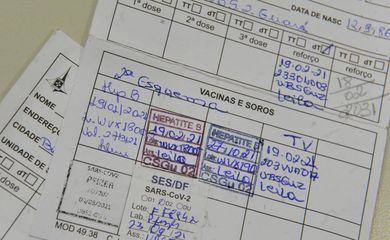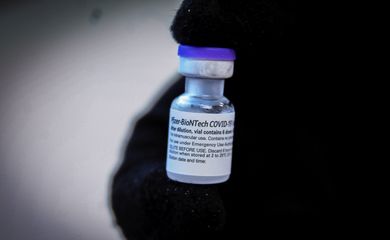Brazil to donate 10 mi COVID-19 shots to low-income nations

Brazil’s Health Ministry today (Dec. 20) announced it will donate at least 10 million vaccine doses against COVID-19 to low-income nations as part of international alliance Covax Facility, conducted by the World Health Organization (WHO) and neighboring countries.

The initiative was recently described by the country’s Health Minister Marcelo Queiroga and Ambassador Paulino Franco de Carvalho Neto, who is representing Brazil’s Foreign Ministry. Brazil’s President Jair Bolsonaro, they reported, has signed a provisional decree authorizing the executive to donate the inoculation in the spirit of humanitarian cooperation.
In addition to the 10 million doses initially set aside, Queiroga stated, another 20 million doses should be donated later on, adding up to at least 30 million shots. Benefited nations must express interest in the donation and grant authorization to receive it from Brazil.
“Guided by the principle of solidarity, we foster operations under the Covax initiative, bringing vaccines to those who need them the most,” Queiroga said. The acting Foreign Minister, in turn, declared that “thanks to the advance and the success of the national vaccination campaign,” Brazil has decided to support countries in Latin America, the Caribbean, and Africa with “a substantial donation of doses.”
Queiroga guaranteed that the initiative will not undermine Brazil’s own immunization plan. “I’d like to point out that the donations to be made by the Brazilian government will not be detrimental to our successful immunization strategy, including the distribution of booster doses to all segments of the public as well as all age groups eventually brought under our national immunization program.”
The health minister also mentioned that the efforts against the pandemic must include international cooperation. “We were aware that the vaccines represented the hope to curb the pandemic nature of COVID-19. As everyone knows, as we approach the end of 2021 [in Brazil], we see figures that attest to the success of the government’s resourceful strategy to ensure Brazilians’ access to the inoculation. As the vaccination drive advances [in the country], we have managed to slash deaths and cases of the disease by over 90 percent from the peak of the pandemic, in April 2020. [However,] we must not forget that some countries are currently experiencing a new wave of infections, with an alarming increase in cases, chiefly as a result of the Omicron variant. Despite the acknowledgment of comprehensive immunization coverage as a global asset, a mere 5.2 percent of the population in low-income countries have received at least a dose of the inoculation. Ninety-eight countries are still at less than 40 percent. Forty-one percent are yet to reach ten percent. We can only be safe when everyone is safe.”
Over 381 million doses of the COVID-19 vaccine have been distributed to states and municipalities across Brazil, the Health Ministry reported. Of these, more than 315 million doses have been administered. More than 90 percent of the target public fit for vaccination have received at least one dose of the drug and over 90 percent of the same group of people have been thoroughly immunized, Queiroga went on to report.
“I believe we have come in line with the WHO, which advocates we should expand access [to the inoculation] among those who are yet to receive the first dose. We’re often pushed to advance the administration of the booster dose so we can reach other age groups, but the world needs shots for those who have not yet received the first dose,” Queiroga added.
In a video aired during the announcement ceremony, Dr. Mariângela Simão, WHO assistant-director general for Access to Medicines and Health Products, mentioned the inequality among countries in the access to vaccines as a problem in preventing new variants of the coronavirus from emerging.
“One of the biggest challenges is still the significant inequality in the access to vaccines. This environment makes it easier for variants to emerge. In the African continent alone, it is estimated that one of every four health agents have been fully vaccinated. WHO’s target stipulated that each country should have at least 40 percent of vaccine coverage by the end of the year. And 98 countries are certainly not going to meet this goal. Therefore, this is a moment in which solidarity among countries proves more important than ever,” said Simão, adding that Brazil is among “the few” medium-to-high income countries to donate shots under the COVID-19 Vaccines Global Access, or Covax.



